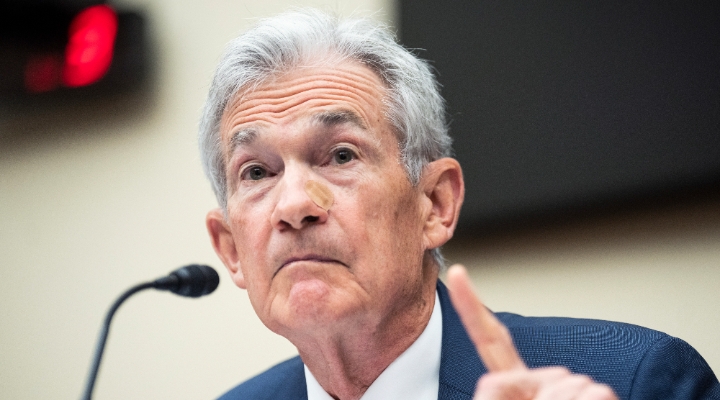
A term that went from euphoria to criticism. That has been the parabolic path of sustainable investing in recent years. Now, investors wonder what’s in store for environmental, social and governance (ESG) investing in 2023, and more importantly, what the threats to ESG might be.
“Sustainable investing and the consideration of ESG factors have become part of the investment mainstream over the past few years. The rapid growth has been spurred by the need for investors to consider nonfinancial risks posed by problems ranging from climate change to natural resource depletion, treatment of workers throughout the supply chain, corporate ethics, and wealth inequality,” Jon Hale, director of sustainability research for the Americas at Morningstar Sustainalytics, says.
“We live in an age of transparency, and stakeholders are demanding better corporate accountability around these types of issues. More end investors want their investments to make a difference,” he adds.
ESG Came Under Attack in 2022
Sustainable investing is in the mainstream now, but it came under attack in 2022. Morningstar experts identified five main threats to ESG in 2023, that could be of interest to UK investors.
1. The Rise of Anti-ESG Forces
2. A Step Backwards on Climate Action
3. Increased (or Increased Confusion Around) Greenwashing
4. Lack of Standardisation in Key ESG Information
5. Underperformance of ESG Securities
Let’s look at each of these in some detail.
1. The Rise of Anti-ESG Forces
In the US, sustainable investing has unleashed a hurricane of criticism, with accusations ranging from deceptiveness and ineffectiveness to a secret agenda to impose “woke” values on capitalism and society.
“ESG could face new challenges in the US beginning January 3, when the Republican Party takes control of the US Congress. That could bring hearings or other attempts to discredit ESG, including, for example, one proposed law, introduced in the Senate, to protect farmers from the SEC’s forthcoming climate disclosure rules,” Leslie Norton, editorial director for Sustainability at Morningstar, says.
“ESG has been in the crosshairs of the Republican Party all year, with the loudest critics comprising some aspiring presidential candidates, including Florida Governor, Ron DeSantis. Indeed, Florida recently said it will pull $2 billion of assets managed by BlackRock (BLK), which it accused of having goals other than pursuing returns. BlackRock, in turn, condemned ‘political initiatives like this that sacrifice access to high-quality investments and thereby jeopardise returns, which will ultimately hurt Florida’s citizens’. Other Republican-controlled states have already withdrawn money from BlackRock,” Norton adds.
What happens next? “My personal view is there will be a lot of noise, very little action,” David Sand, chief impact strategist at Community Capital Management, says. “I can’t imagine legislative interference in portfolio management decisions.”
“Indeed, we’d argue that ESG and sustainable investing aren’t going anywhere, because it offers a fuller view of risk and opportunity. Just look across the Atlantic, where sustainable investing is firmly entrenched,” Norton concludes.
Adam Fleck, Director of ESG Equity Research at Morningstar, thinks that scrutiny and discussion are necessary and positive to drive the maturation and growth of the industry, but he says that “the consideration of financially material ESG risks and opportunities is a critical part of valuing a company’s stock”.
“That’s true no matter which way the winds of political sentiment or market performance are blowing. But importantly, this ESG integration differs from a consideration of ESG impact, in which different investors will express their varied preferences through personal choices in their portfolios”.
“Conflating the two – risk and impact – can be disingenuous and dangerous. Investors who believe that the use of ESG risk integration should be expected to drive positive societal impact are bound to be disappointed, while critics who point to differing preferences among impact outcomes as an excuse to ignore ESG risk integration does so at their own peril.”
2. A Step Backwards on Climate Action
This year, COP27, the UN climate summit in Sharm-El-Sheikh, disappointed ESG supporters. Except for a commitment for a new fund to help poor countries manage climate-related damage, there was little to celebrate. For example, there was no commitment on any ambitious targets such as phasing out all fossil fuels and having global emissions peak by 2025.
Moreover, it seems that in the investment industry something is creaking in the commitment to fight climate change and the adoption of sustainable practices, as a consequence (also) of the war in Ukraine and attempts to politicise ESG issues.
In recent months, the energy crisis has increased the demand for fossil fuels and some countries have responded with an increase in the use of oil, gas and coal. The priority of many governments has become that of energy security.
What will happen at COP28 that will take place in the petrostate of United Arab Emirates in 2023? Will the fossil fuel lobbies raise their voices? Experts said that more progress is needed to attain 2012 Paris Agreement’s targets, but after COP26, actions to quickly reduce the impacts of climate change have stalled.
“When it comes to the future of energy, we need to be emitting much less carbon than we are today. For this to occur, investment in cleaner fuel sources will need to ramp up materially over the next few years, as things stand today we are simply not denting the trajectory of carbon emissions, which continues its upward trend almost unabated,” Michael Field, European Market Strategist at Morningstar, says.
3. Increased (Or Increased Confusion Around) Greenwashing
When German authorities raided Deutsche Bank and its asset manager DWS in May 2022, greenwashing quickly went from just being bad marketing practices to being a massive legal risk. Much criticism has arisen around greenwashing, a practice in which fund managers (and companies) are accused of misleading customers by exaggerating the sustainability attributes of their products.
Regulators in many countries are trying to address this issue and something could change in 2023.
Hortense Bioy, Global Head of Sustainability Research at Morningstar, says: “Navigating the ESG and sustainable fund market will remain a challenge in 2023 as greenwashing accusations intensify. Regulators are determined to clamp down on misleading ESG claims to protect end investors. This is of course necessary in order to restore trust as there is a lot of cynicism right now about ESG products.”
4. Lack of Standardisation in Key ESG Information
Establishing a common ground for ESG disclosure remains a challenge in 2023 and beyond.
After COP27, Andy Pettit, director of Policy research at Morningstar EMEA, wrote that when it comes to ESG product disclosures, the most advanced regime remains the EU’s Sustainable Finance Disclosure Regime, or SFDR, a key component of the wider EU Action Plan.
“This is straightforward for products domiciled or invested within Europe, but those outside of the EU are not bound by the same restrictions, making direct comparison almost impossible. These difficulties are likely to compound further as more countries develop their own taxonomies and classification frameworks, each with a unique set of requirements and deadlines.”
“Investment product disclosures have varied considerably from market to market long before the incorporation of ESG issues, but they did, however, benefit from a standardised way of calculating key information points. Things like past performance and expense ratios have remained consistent, which is invaluable for common understanding and comparability.”
“If this same international agreement was applied to key sustainability metrics and their calculation, it would matter less which type of document was used to present this information to investors – an SFDR-type disclosure, a UK consumer-friendly disclosure, or any other.”
5. Underperformance of ESG Securities
ESG fund performance may continue to be challenged by the macro-environment and the current energy crisis.
“In 2022, ESG fund performance suffered from high fossil fuel prices as ESG funds tend to be underweighted in traditional energy companies, while they overweigh the technology sector,” Bioy explains.
“Investors should be constantly reminded that all investments can go through periods of underperformance. ESG and sustainable strategies are no different. But investors should focus on the long term. Sustainability is about the long term.”




























